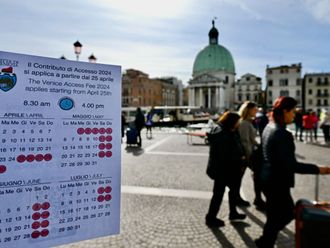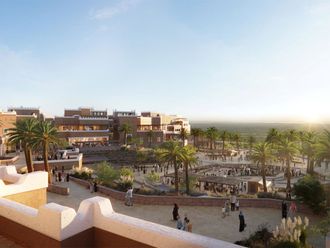China usually makes headlines for its environmental protests, and pollution. It is the world’s largest emitter of CO2 gases and 70 per cent of China’s rivers and lakes are contaminated. As such “green” hasn’t really featured as a selling point for travel to the Middle Kingdom. Until now.
A new retreat tucked among the bamboo forests and tea plantations of Zhejiang province a two-and-a-half-hour journey from Shanghai has become a highly comprehensive eco resort. The Naked Stables Private Reserve has been built to provide sustainable tourism in some of China’s prettiest countryside.
The 60-acre reserve is trying to become the first resort of its size in Asia to achieve platinum certification in the US Green Building Council’s Leadership in Energy and Environmental Design programme.
Examples of smaller scale eco tourism resorts in China include the Red Capital Ranch (redcapitalclub.com.cn), which offers guests a private entrance to a wild section of the Great Wall and accommodation in 10 rustic standalone villas. In Xishuangbanna, southern Yunnan province, Yourantai Bed and Breakfast (yourantai.com) is located on a former rubber plantation and promotes sustainability by using local carpenters and wood salvaged from old Dai minority village houses to recreate traditional Dai architecture. Yourantai aims to help restore bio-diversity in the area. But while eco-tourism and sustainability is gaining traction in China, it still has a long way to go.
When I visited Naked Stables, the first thing that hit me was the winter sunshine pouring through the windows of the reception hall. The second was the view: outside, beyond a wood-decked terrace, spacious lawn, and infinity pool, stretches a vista of lush green mountains.
Naked Stables is the creation of Grant Horsfield, a South African determined to import the hospitality of his homeland. Asian influences are provided by his wife, Hong Kong-native Delphine Yip, a partner at a Shanghai architect’s practice she is the site’s chief planner and architect.
This is not Horsfield’s first project, he also set up the Naked Home Village, consisting of eight converted homesteads, in nearby Moganshan in 2007. The couple worked closely with their neighbours to keep relations smooth: more than 150 local artisans and labourers were hired during Naked Stables’ construction phase, while a further 120 villagers from the immediate area work as staff.
The idea came out of adesire to provide an accessible beauty spot near Shanghai. “I was surprised that if you don’t play golf, there was nothing you could do to take you out of the city,” said Horsfield.
It is the South African atmosphere that prevails, from the stews served in the main restaurant to the cow hides that line the wood floors and sofas of the clubhouse. It’s a theme that attracts both wealthy Chinese locals looking for a novelty experience and expats hungry for something more familiar; however, travellers to the country may find it disappointing that Horsfield has utilised so little from traditional China.
By next summer it is hoped that 30 per cent of the produce served in the restaurant will be organically sourced from the property’s own gardens. Animals, including sheep, chicken, ducks, and water buffalo, will be reared to eat. There are even plans to reintroduce the endangered native Sika (or Spotted) deer. Sika deer were once endemic to China but the wild population is now less than 1,000 due to destruction of habitat and widespread hunting. At Naked Stables they will wander freely among the reserve’s forest grounds.
The result of such ambitious plans is a sort of safari-meets-upmarket-Center Parcs. Each villa is provided with a personal “butler,” cars are barred (guests are encouraged to walk or use electric golf buggies) and a series of activities, from horse riding to guided mountain hikes, kite-flying to yoga, are available.
We stayed in one of the flagship Tree-Top Villas, perched on stilts among the foliage. Our villa’s decor is Afro-minimalist, with vast high ceilings, tactile wood surfaces, and African-inspired hangings. Most decadent is a bath tub with views over a huge canopy of woodland.
The villas are designed to be highly energy efficient. Smaller mud Earth Huts are made using rammed earth walls. Here, mud and insulation foam are bound together by a string of concrete to create a thick mask which insulates the hut, meaning less cooling and heating is needed. To top it all off, 100 per cent of the reserve’s water is recycled. Such sustainable luxury doesn’t come cheap, however: two-bedroom Tree-Top Villas start from £460 (Dh2,888) per night (three and four bedroom villas are also available), while the Earth Huts for two people begin at 150. Staying at Naked Stables is a polished, rather than an authentic, experience. It’s perfect for those with a family who want minimal hassle. And it’s easy to not wander beyond the reserve’s gates. But for those in search of the “real China,” it can be found just outside. We take a three-and-a-half hour amble through local villages leading up to Moganshan.
The mountainous hamlet is covered by bamboo plantations, and sits 700 metres above the East China plain. Foreigners living in Shanghai started using the hillside as a summer retreat in the late 19th century to escape the stifling summer heat. They were followed by Shanghai’s gang bosses.
Today, Moganshan offers the perfect rustic escape. Guests can stay in the Naked Home Village’s converted European-style farmhouses dotted on a steep pathway up the mountain, which cost from £35 per person a night at the Purple Ridge Lodge (minimum 12 people) or £106 for a two-person Studio. The Moganshan Lodge (moganshanlodge.com) run by veteran China expat and Moganshan resident Mark Kitto (author of China Cuckoo: How I Lost a Fortune and Found a Life in China) and his Guangzhou-born wife Joanna, is the only place for miles to find fresh coffee, English breakfasts and home-cured bacon (sourced from local pork). Adjacent is the Songliang Hotel (moganshanlodge.com), which, with rooms starting from just £28 a night, is best for those looking for a dose of mountain isolation on a budget.
We walked back down a road lined with concrete Chinese-style homes; at its end were pretty European-style stone inns at the tip of the mountain. Farmers were hacking down bamboo and transporting bamboo sticks on motorcycles and eyeing us suspiciously. It was an interesting insight into real life in China’s rural hinterland. But it was also good to know that just down the road there was a hot tub waiting for us.












